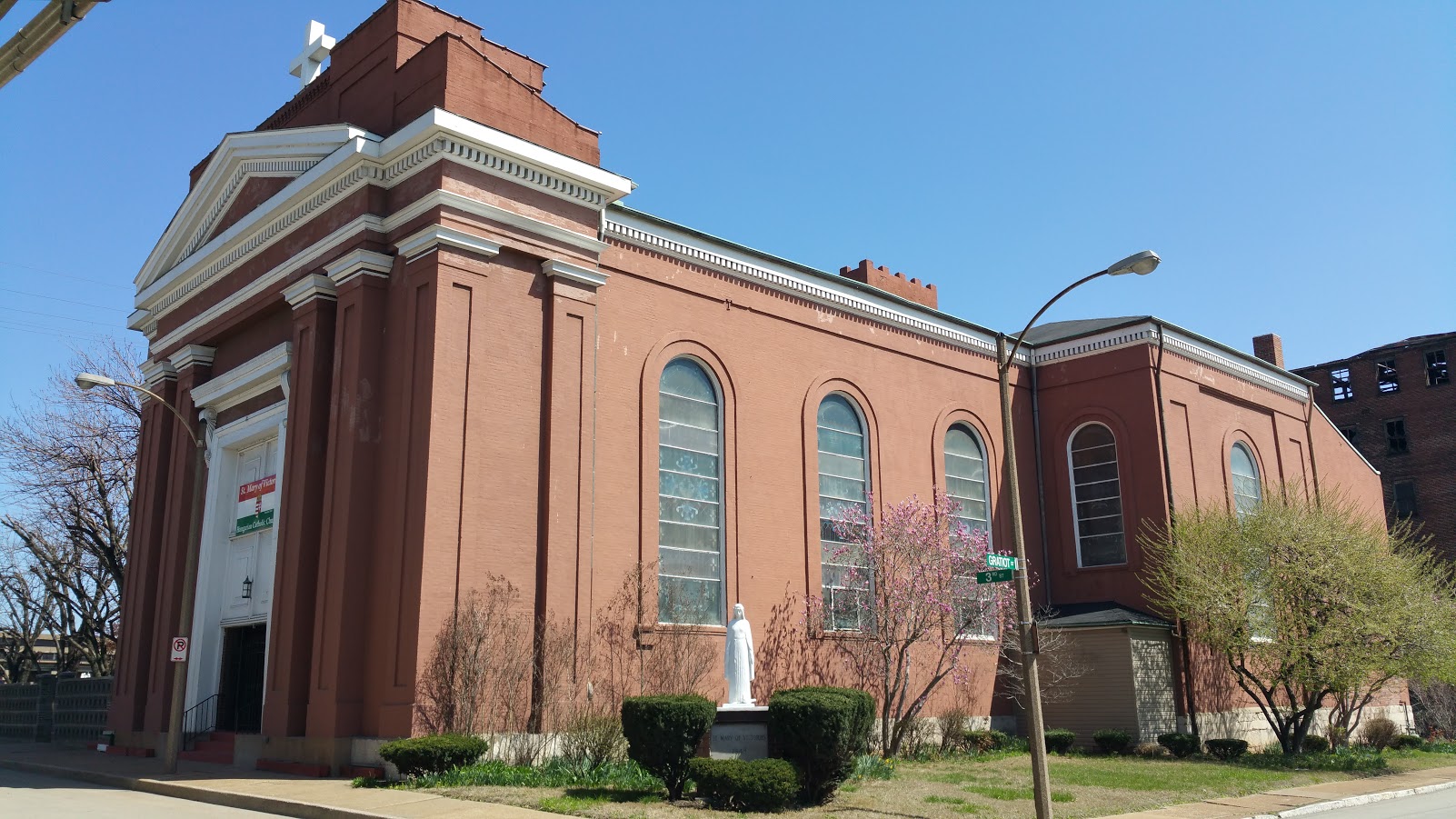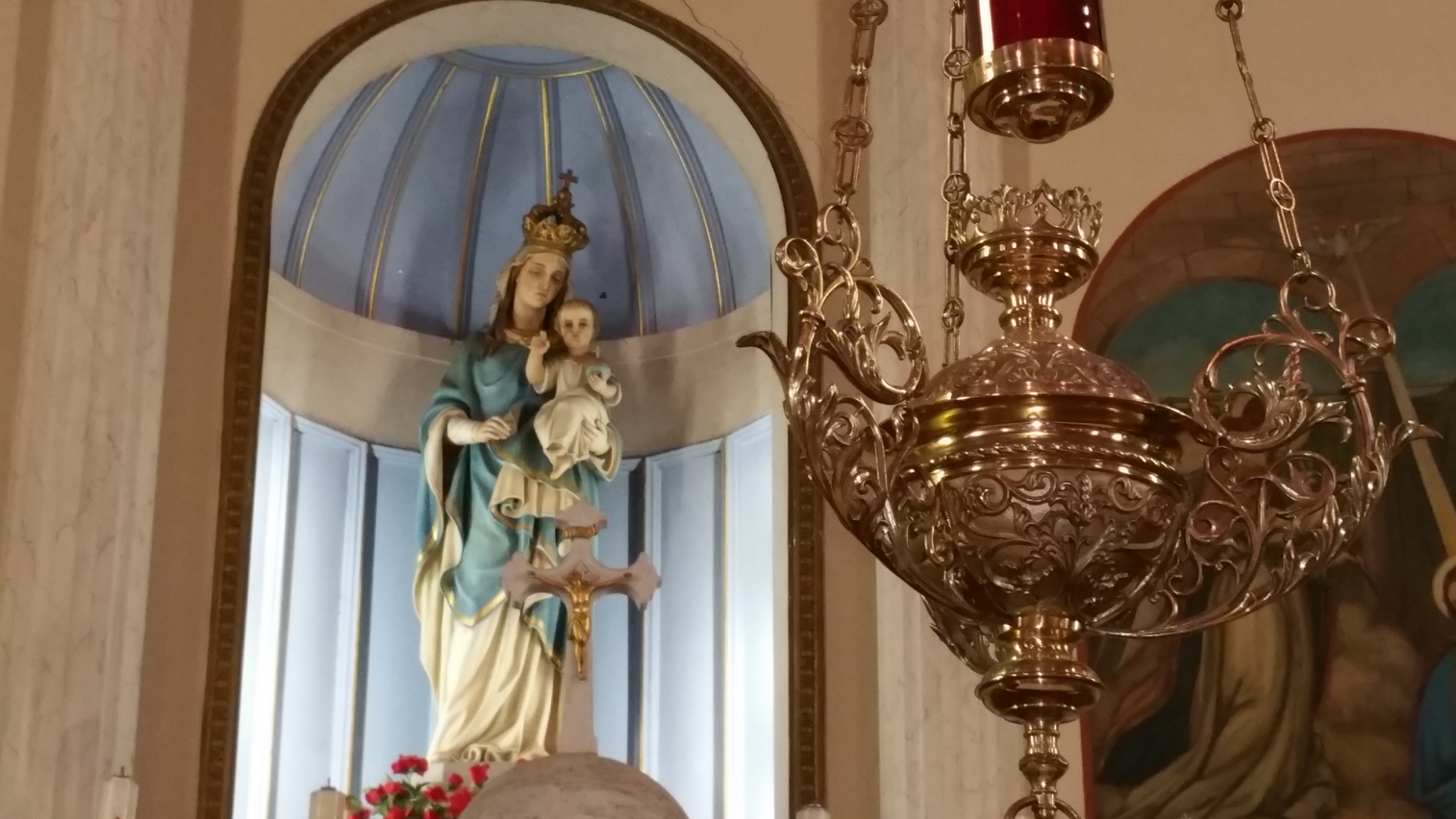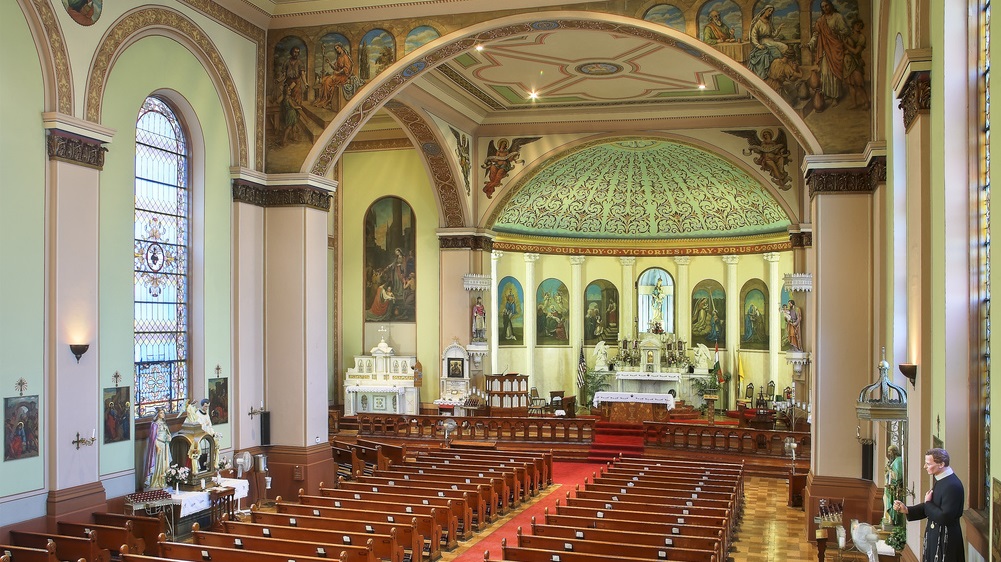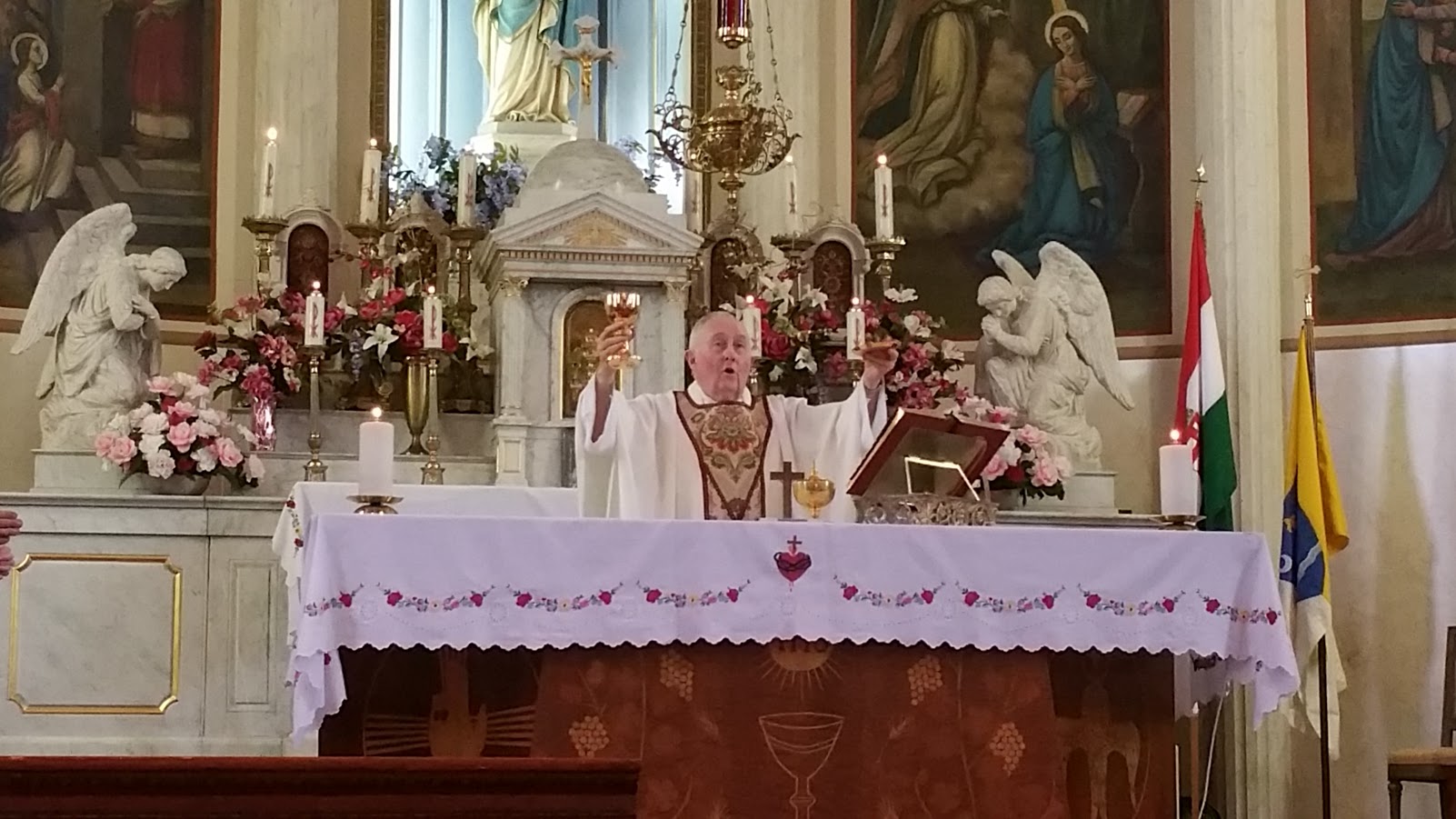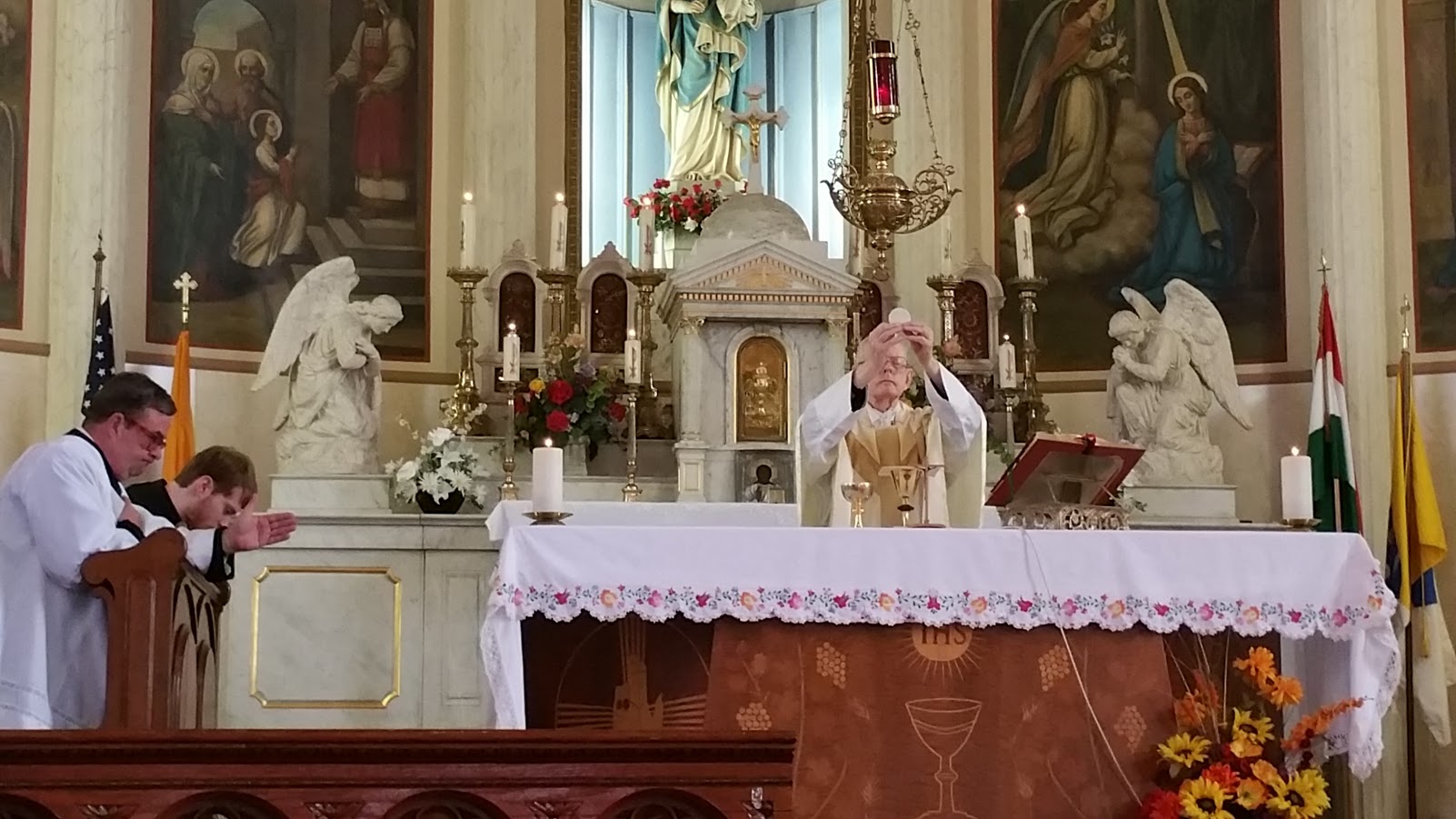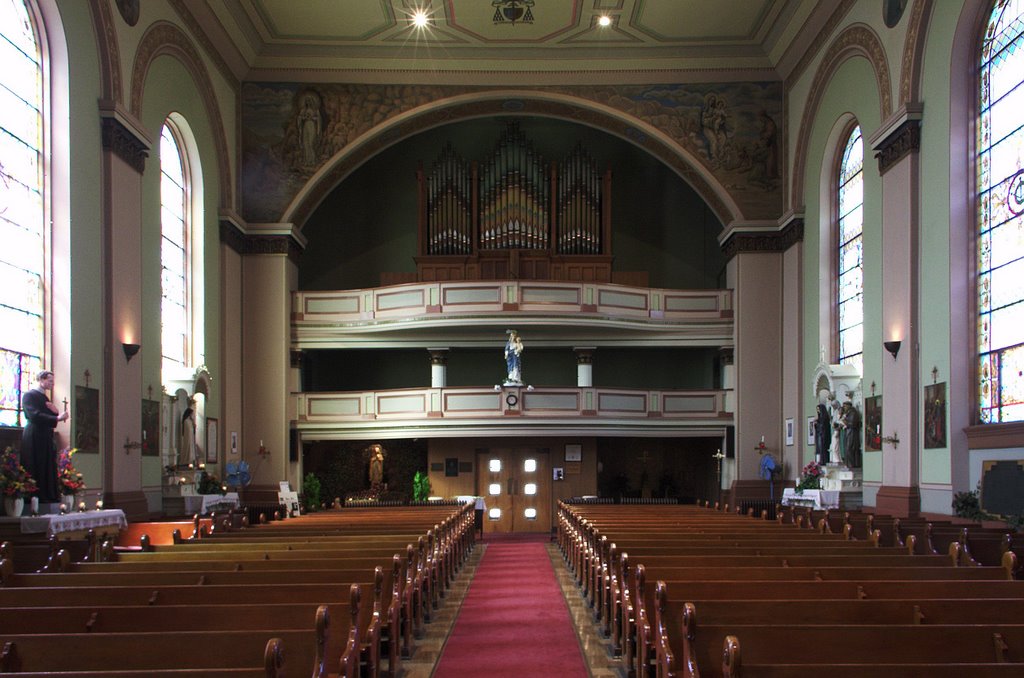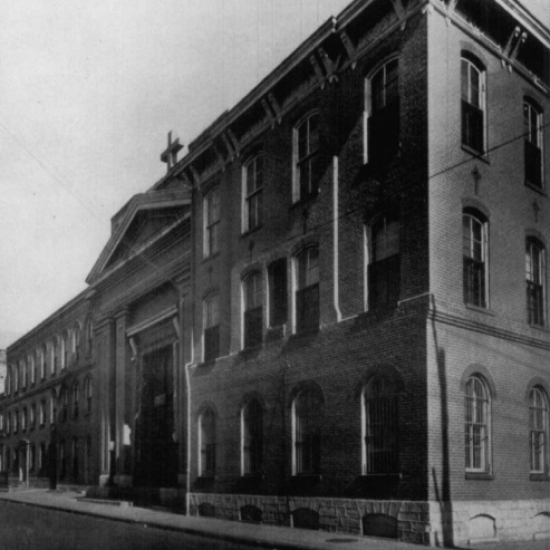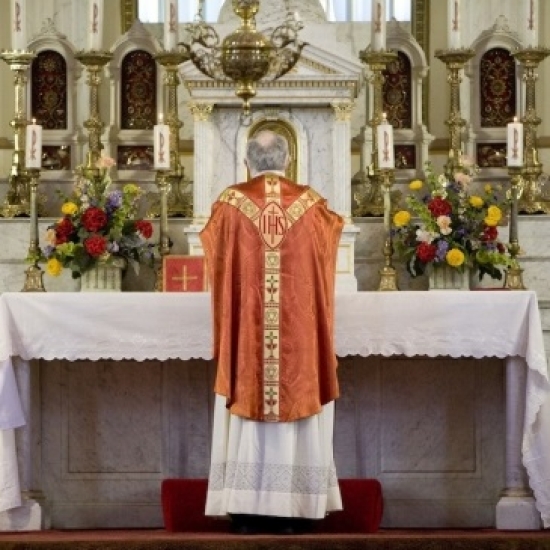Introit: Justus es
Offertory: Panis angelicus, p. 309
Communion: Vovete
Recessional: Faith of our fathers, p. 208
Mass XI, PBC p. 58. Credo III, PBC p. 77
There are two phrases in the Introit antiphon:
1. Justus es Domine et rectum judicium tuum
2. fac cum servo tuo secundum misericordiam tuam
This (relatively brief) Introit is an important text. It makes a firm declaration of God's righteous judgement and then asks for His mercy, but with a confidence that we will receive it. The melody reflects this with many elements also found in the famous Introit Suscepimus Deus that we sang a few weeks ago and on Candlemas. We have a strong fifth in the intonation, quick rise to high e/mi, and the same melody over the words (mi)-sericordiam tuam as we have here over judicium tuum. In the former piece, however, the development is drawn on larger lines and is easier of comprehension, while in today's Introit tuo leads over to the conclusion somewhat too suddenly. A pause after tuo to take a full breath would break the melodic continuity of ecac with the subsequent cafgf. This chant is much more effective if the whole is sung without any interruption, with singers breathing at different places. Tuo is also the only word with melodic shifting, since the accented syllable is lower than the following syllable. The ending of the second phrase expands the closing motif of the first phrase a fifth lower.
Not by accident does Dom Johner link 'God's righteous judgement' to His mercy. To expand on that, here is an (abridged) except of comments in an article I wrote recently. The Latin word justus can be misleading. It is often translated as 'just,' whose connotations today revolve around our modern concept of 'justice' and the legal system that supports it, with the elements of crime, punishment, retribution, and restitution uppermost in our minds. But the Latin noun justitia translates the Greek dikaiosune (δικαιοσύνη), (L&S, p. 371), which the Septuagint and the New Testament use for the concept behind the Hebrew tzedek (צְדָקָה) (B/D/B, p. 841). Most modern English versions of the Scriptures follow Tyndale's lead and translate that as 'righteousness', a better word for the rich and complex scriptural notion of God's nature and His behaviour towards His creatures. While the legal aspects (crime, punishment, etc.) are a certainly a part of this, the fundamental meaning of the term is God's fidelity to His covenant. This fidelity is the primary characteristic of God's nature in Sacred Scripture, the written record of God's interaction with us, the people of His covenant. This fidelity is inseparably linked with another fundamental scriptural characteristic of God, chesed (חֶ֫סֶד), (BDB, p. 339), the steadfast, unchanging love that He has for his people. God is faithful, and loves us without fail, despite our all too frequent lack of positive response to that love. This is the misericordia in the second phrase, most often translated as 'mercy'; but perhaps 'steadfast love' or 'tender compassion' might be a closer approximation of the Hebrew. Although God's righteousness cannot ignore the consequences of our own free choices to turn away from truth and choose false goods (i.e., sin), He Himself remains unfailingly loving and generous to all who turn back to Him and seek Him in truth. He is the model of authentic 'righteous judgement,' which St James admonishes us to follow: Mercy exalts itself above judgement. (Jas 2:13)
In the Communion antiphon we hear a very heavy text, almost ominous. More often than not, communion antiphons are upbeat and reflect the great consolation and joy we have at receiving Our Lord in the Holy Eucharist and the quiet intimacy that flows from a more intense awareness of our union with Him. But today he is portrayed - as he was in the Introit - as ruler and judge over all powers. Dom Gregory does well to translate terribili as 'awesome'; despite the overuse of the word in modern slang, it still conveys that mixture of wonder and reserve - with a bit of fear - that the presence of God evokes. It has three phrases:
-
(a) Vovete et redite Domino Deo vestro
(b) omnes qui in circuitu eius affertis munera -
terribili et ei quo aufert spiritum principum
-
terribili apud omnes reges terrae
There are some interesting melodic bits; I'll mention just a few. Vovete rises to the weak mi, reflecting the weakness of our own promises to do what God wills, and then goes to the strength of the tonic to contrast that with actually doing what God commands (reddite). The melody over in circuitu ejus moves in a semicircle as if imitating the meaning of the phrase. The first terribili begins on the dominant, and with its major third is the most significant word of the melody. It wants to leave no doubts about the difference between our human weakness and God's domination. The second terribili likewise begins on the dominant and then ends with a typical cadence when the kings of the earth reverently bow before the majesty of God.
